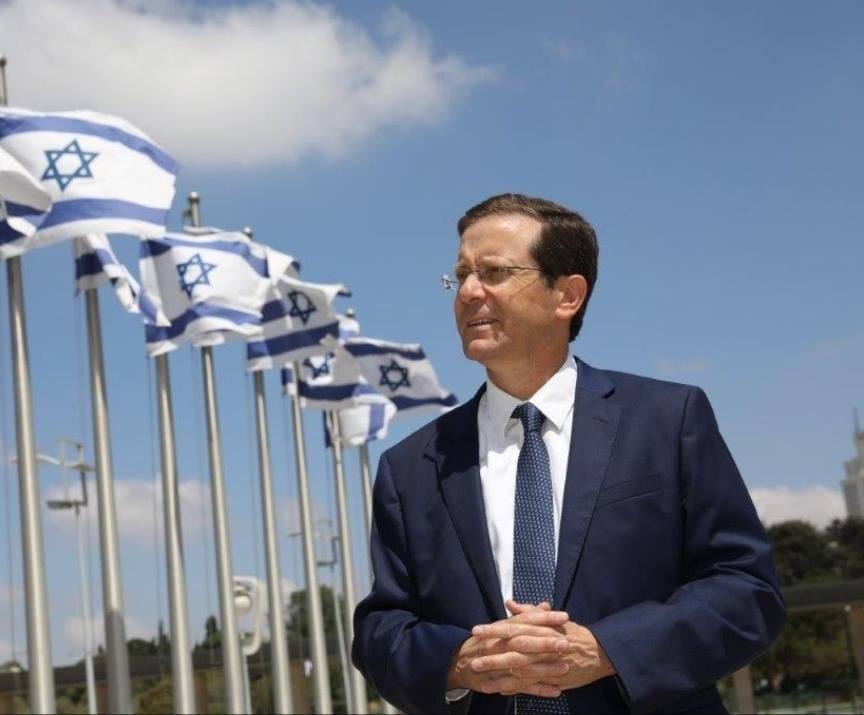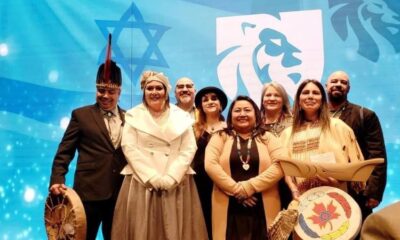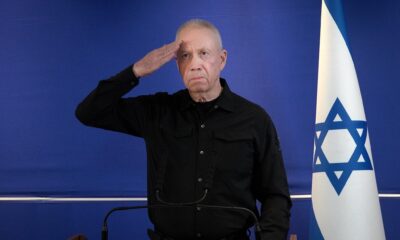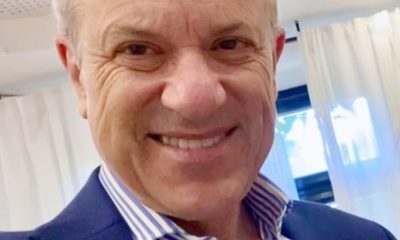
Israel

Israel’s new president – a friend of SA Jewry
Israel’s new president-elect, Isaac Herzog, is a great friend of South African Jewry and has been determined to mend ties between the South African and Israeli governments for years.
“He is a great friend to the Jewish community here,” says Liat Amar Arran, the head of the Israel Centre in South Africa, who worked closely with him in his role as leader of the Jewish Agency for the past two years. “He has strong relationships here in South Africa, and has been tracking all the projects he set for us when he was last here in 2019.”
South African Zionist Federation chairperson Rowan Polovin said “President-Elect Herzog is a great friend of the South African Jewish community, and we look forward to strengthening our friendship and partnership with him and the State of Israel.”
Herzog – the 11th president of Israel – comes from the so-called Zionist royalty, with his father, General Chaim Herzog, having been a former Israeli president, his uncle, Abba Eban, Israel’s first foreign minister and ambassador to the United Nations, and his grandfather Israel’s first Ashkenazi chief rabbi.
Herzog, formerly the chairman of the Israeli Labour Party, served as the opposition leader from 2013 until 2018. He served as a member of Knesset between 2003 and 2018, having held several ministerial posts. It was as the head of the Jewish Agency, effectively the leader of the Jewish world, that he visited South Africa in 2019.
Many of his supporters believe that although the presidency is more of a figurehead role, Herzog will focus on building relations between Israel and the Jewish world, and working towards peace in the Middle East.
When he was in South Africa, he told the SA Jewish Report that he objected vehemently to the South African government pulling out its ambassador to Israel and moving to downgrade its embassy. He said he was determined to do everything he could to change this.
Herzog, a soft-spoken, no-nonsense leader, told the SA Jewish Report he was passionate about the South African and Israeli connection and its long-term importance. However, he is even more dedicated to the longevity of the Jewish people and ensuring we have a solid future.
“The South African government can contribute hugely toward the advancement of peace in the region if it wants to, but not if it cuts ties,” Herzog said.
While he described the South African Jewish community as “hugely impressive”, he said it was “being challenged dramatically with an unclear future”. He was worried about the “strong anti-Israel line from the African National Congress (ANC), which put a certain cloud over the ability of Jews and Zionists to express themselves and be able to thrive as Jews”.
Herzog said at the time he wanted to “strengthen Jewish communities and enable each and every Jew to feel free as Jews and to express their Zionism with no fear or harassment”.
He clarified at the time that South Africa was known as the world leader in the so-called “new antisemitism”, which is classic antisemitism intertwined with the delegitimisation of Israel. This problem, he said, stemmed from within the ANC.
“Its position is due to historical relations with the Palestinian national movement,” Herzog said. “The problem is that it hasn’t acknowledged that the region has changed and many of those countries that called for our annihilation 50 years ago are now some of our best allies. Meanwhile, it’s trying to pursue a whole set of resolutions against Israel worldwide.”
And then you have the situation, Herzog said, of “the average South African brainwashed by a machine that tells it lies about Israeli democracy”.
Herzog said he believed Israel-hatred should be dealt with on three fronts. First, he said, “We have made sure Jews are well protected and defended. This is clear from the impressive organisation that deals with this in South Africa.”
Second, he speaks of fighting antisemitism in the courts, and trying to get governments around the world to adopt the IHRA (International Holocaust Remembrance Alliance) resolution on antisemitism.
As for education, “this is complex in a political climate that doesn’t want to hear. There are modern-day tools we use like social networks, and we can try and do our best to show the true story of Israel.”
When he was here, he spoke of the Palestinian-Israeli conflict as “complicated”.
“What haven’t we tried? We tried peace agreements, unilateral withdrawals, economic packages, and other measures. There is an overwhelming majority in Israel who want peace, but there is a total lack of trust in Palestinians to deliver.
“In 2005, Israelis were out there supporting the unilateral pull-out of Gaza. We uprooted Jewish settlements in the process, we promised there would be a Hong Kong of Middle East, but instead we got 10 000 missiles fired at us.
“Israelis are wary of trying this again. We have to find new ideas. A major development between 2005 and today is that there is a strong political coalition of moderate nations with Israel confronting Iran in the region. These nations – including Egypt, Jordan, Saudi Arabia, and others – once wanted to throw us in the sea, but are now working with us.”
It will be interesting to see what, as president of Israel, Herzog does to act on these beliefs.










